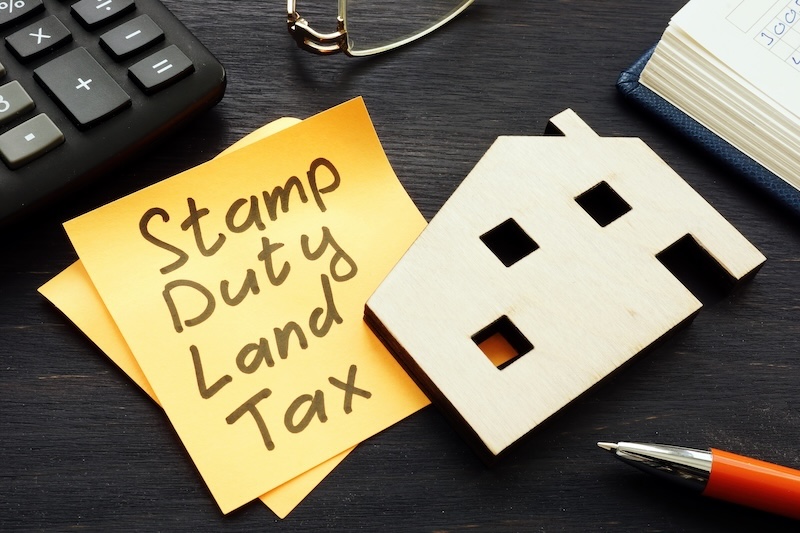
Navigating the landscape of property ownership in Thailand can be complex, especially when it comes to understanding the various taxes that apply. Whether you are a local citizen or a foreign investor, being informed about the tax obligations associated with property transactions is crucial. This guide aims to break down the essential elements of Thailand property taxes, including transfer fees, stamp duties, withholding taxes, and the recently enacted Land and Building Tax Act.
Overview of Thailand Property Taxes
Thailand’s tax system for property ownership is multifaceted, encompassing several different types of taxes that property owners and buyers need to be aware of. These taxes can vary based on the nature of the property and the parties involved in the transaction.
Key Property Taxes Explained
- Transfer Fee – This fee is typically set at 2% of the property’s registered value. It is generally the responsibility of the buyer to pay this fee during the transfer of ownership.
- Stamp Duty – Stamp duty is charged at a rate of 0.5% of the registered value of the property. However, this tax is only applicable if the transaction is exempt from business tax.
- Withholding Tax – The withholding tax can be a bit more complex. If the seller is a company, the tax is calculated at 1% of either the appraised value or the registered sale value, whichever is higher. For individual sellers, the withholding tax rate is progressive and based on the appraisal value.
- Business Tax – This tax is set at 3.3% of the higher of the appraised value or the registered sale value. It applies to both individuals and companies involved in the sale.
Tax Responsibilities: Who Pays What?
| Tax Type | Responsible Party | Amount |
|---|---|---|
| Transfer Fee | Buyer | 2% of registered value |
| Stamp Duty | Seller | 0.5% of registered value |
| Withholding Tax | Seller | 1% of appraised value or registered sale value |
| Business Tax | Seller | 3.3% of appraised value or registered sale value |
Understanding who is responsible for each of the property taxes is essential for both buyers and sellers in Thailand. This clarity can help prevent misunderstandings and ensure that all parties are prepared for the financial aspects of the transaction.
The Land and Building Tax Act B.E. 2562 (2019)
In 2019, Thailand introduced the Land and Building Tax Act, which significantly overhauled the previous tax framework. This legislation came into effect on March 13, 2019, and established new requirements for property owners.
Key Features of the Act
- Effective Date and Implementation – The Act mandates that property taxes in Thailand be paid starting January 1, 2020. This transition marked a significant shift in how property taxes are assessed and collected.
- Repeal of Previous Legislation – The new Act replaces several older laws, including the House and Land Tax B.E. 2475 and the Land Development Tax B.E. 2508. This comprehensive update aimed to streamline the tax process.
- Tax Obligations for Property Owners – All individuals and legal entities with ownership, possessory, or usage rights over land or buildings must pay this tax. This includes condominium units as well.
Tax Assessment and Collection – The local administrative authorities are responsible for collecting the land and building tax. The tax amount is determined based on the official assessed price set by the government for registration fees under the Land Code.
Tax Rates and Exemptions – The Land and Building Tax Act outlines fixed maximum rates for taxation, along with specific exemptions for qualifying property owners.
Fixed Maximum Rates – The Act specifies maximum tax rates that local authorities can impose. These rates are designed to ensure that the Thailand property taxes remain manageable for owners while providing necessary revenue for local governance.
Importance of Compliance – Understanding and complying with Thailand property taxes is essential for all property owners. Non-compliance can lead to significant penalties, including fines and potential legal action. Therefore, staying informed about tax obligations is critical.
Consequences of Non-Compliance
- Fines and Penalties: Failing to pay taxes on time can result in hefty fines, which can accumulate quickly.
- Legal Repercussions: Continued non-compliance may lead to legal action, including the seizure of property.
- Impact on Future Transactions: Unpaid taxes can complicate future property transactions, as potential buyers may be deterred by outstanding obligations.
Navigating Thailand Property Tax Regulations
For both local and foreign investors, navigating the property taxes in Thailand can be daunting. However, several strategies can help ensure compliance and minimize tax liabilities.
Seeking Professional Advice – Engaging with property lawyers or tax consultants who specialize in Thai real estate can provide invaluable insights and guidance. These professionals can help property owners understand their obligations and identify potential exemptions.
Keeping Detailed Records – Maintaining thorough records of all property transactions, tax payments, and assessments is crucial. This documentation can serve as evidence in the event of disputes or audits.
Staying Updated on Tax Changes – Tax laws can evolve, and staying informed about any changes is essential for compliance. Subscribing to newsletters or following relevant government announcements can help property owners remain aware of new developments.
Conclusion
Understanding Thailand property taxes is an essential aspect of property ownership. From transfer fees to the Land and Building Tax Act, being informed about tax obligations can help property owners navigate the complexities of the Thai real estate market. By seeking professional advice, maintaining detailed records, and staying updated on tax regulations, property owners can ensure compliance and make informed decisions regarding their investments.
As Thailand continues to develop its property market, staying informed about tax obligations will be crucial for both local and foreign investors. By understanding the various taxes and regulations in place, property owners can protect their investments and contribute to the country’s economic growth.
This article provides a comprehensive overview of Thailand property taxes, covering essential aspects that every property owner should know. By ensuring compliance and seeking professional advice, property owners can navigate the tax landscape effectively and make informed decisions regarding their investments.





